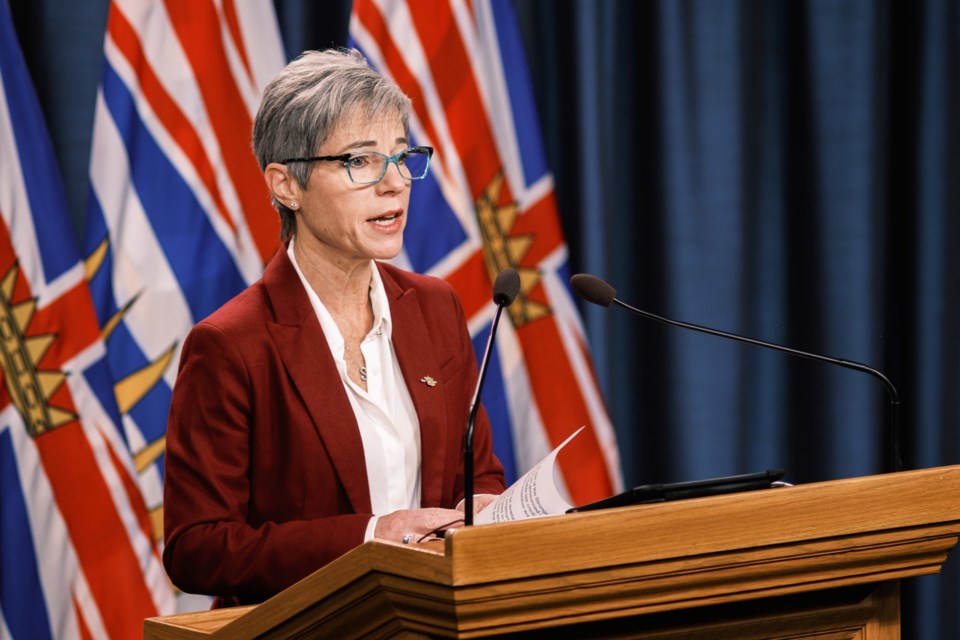How exactly do you talk about nothing? How many hours can you spend debating an idea with no specifics, or an abstract concept without details?
We’re about to find out at the BC legislature, when it comes to the issue of a new “cooling off period” on home purchases.
It’s one of the most interesting developments on the housing file in years, and will be watched by millions of British Columbians. It upends the way real estate deals are currently done, adding several days during a purchase in which a buyer organizes financing, obtains a home inspection – and if necessary, backs out of the offer.
The high-profile nature of the announcement made it all the more surprising when Finance Minister Selina Robinson introduced legislation on the subject this week that was only two - yes, you read that right, two - pages long.
At 573 words, including “explanatory notes,” I’ve seen elementary school book reports longer than the “Property Law Amendment Act.” It took me only 67 seconds to read the entire bill, yet Robinson spent 17 minutes at a press conference on the subject where she said, basically, nothing.
“Specific regulations about how a home buyer protection period can work in BC are coming later this year,” explained the minister.
This has become a familiar tactic of the BC NDP government – introduce legislation that is a hollow shell of an idea, demand it be passed, and then fill it all in later at a closed-door cabinet meeting where the pesky public has no say or input.
A similar approach was used earlier this year on old growth forestry protections, and the gutting of the Freedom of Information law. It will undoubtedly become the norm going forward.
The major advantage of this tactic is it allows the government to avoid answering questions in the legislature. Instead, whatever minister is rising on whatever hollow bill can simply say that it’s inappropriate to talk about the fees, deadlines, timeline, or important details of the law. Those will be filled in later through a separate process in which cabinet writes its own regulations.
The only thing left, then, is an esoteric debate about the conceptual idea of a bill, with the minister inevitably running out the clock by reading partisan lines about “making lives better for British Columbians” until the opposition MLAs throw up their hands in frustration and defeat.
BC Green leader Sonia Furstenau said there might be merit behind the idea of a cooling off period, but the way in which the government has approached it is just as problematic.
“I have major reservations about this legislation,” she said.
“For one thing, it is leaving a lot up to regulation - the details of this ‘Protection Period’ have yet to be decided. By implementing the changes through regulation, the BC NDP are once again bypassing the essential democratic oversight of the Legislative Assembly.”
To be clear: BC New Democrats did not invent this practice. Former BC Liberal premier Gordon Campbell used it, and former premier Christy Clark perfected it. Both were criticised at the time by the then BC NDP opposition for their outright disdain of the legislature, their dismissal of the democratic process of debating legislation, and their arrogant high-handed approach to the treatment of parliamentary democracy.
But that was then. Now the BC NDP are in power – and lo and behold it too has suddenly discovered the practical advantages of undercutting the legislature and writing all the details later by cabinet order. Except, New Democrats don’t seem to think there’s a problem with their approach. It’s entirely different, because they occupy a moral high ground from which their actions are better than their opponents.
This kind of convenient cognitive dissonance happens frequently in politics – a party opposes something in opposition and then fervently embraces that which it opposed in government, arguing it’s not the same thing because their motives are pure, unlike those scoundrels that came before.
So we wait for a spring discussion on cooling off legislation, where very basic questions like “how long will the cooling off period be?” and “what penalty will a person face for backing out of a deal?” will be batted aside by the government as irrelevant. They aren’t. Debating the details to inform the public is how our system is supposed to work. If only our politicians stopped undermining that process.
Rob Shaw has spent more than 13 years covering BC politics, now reporting for CHEK News and writing for The Orca. He is the co-author of the national best-selling book A Matter of Confidence, and a regular guest on CBC Radio.



